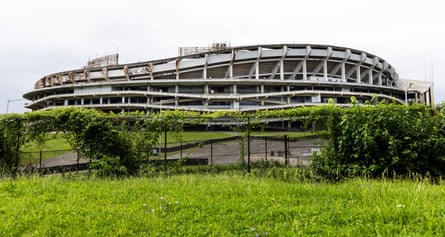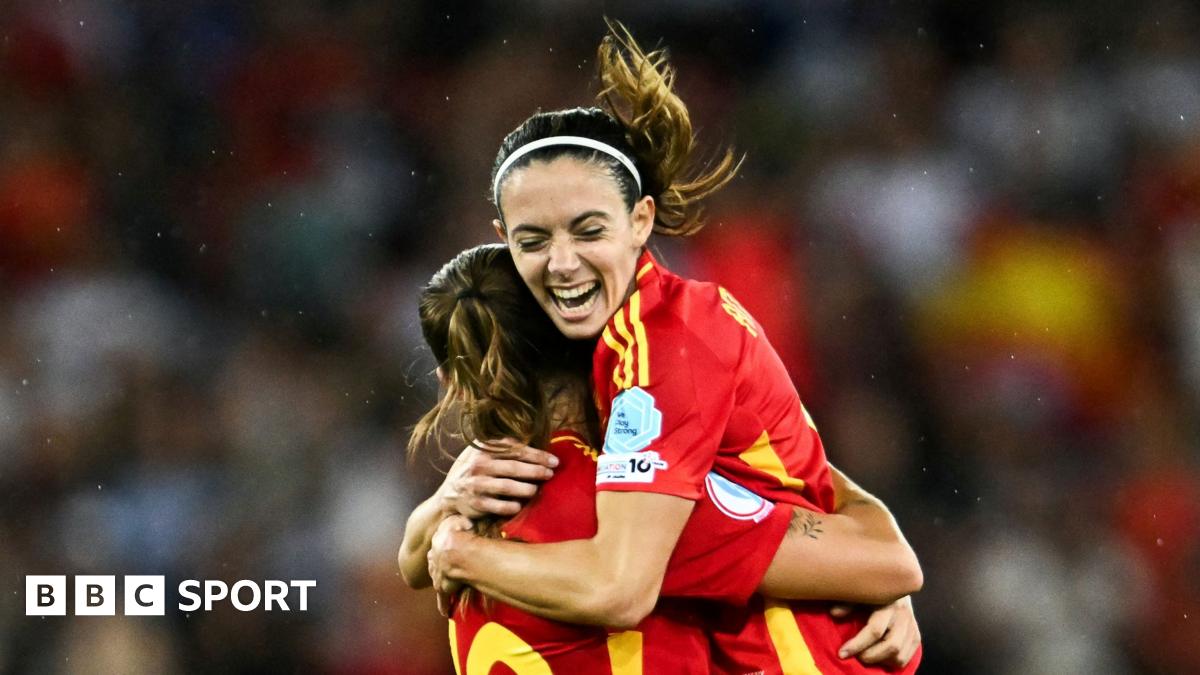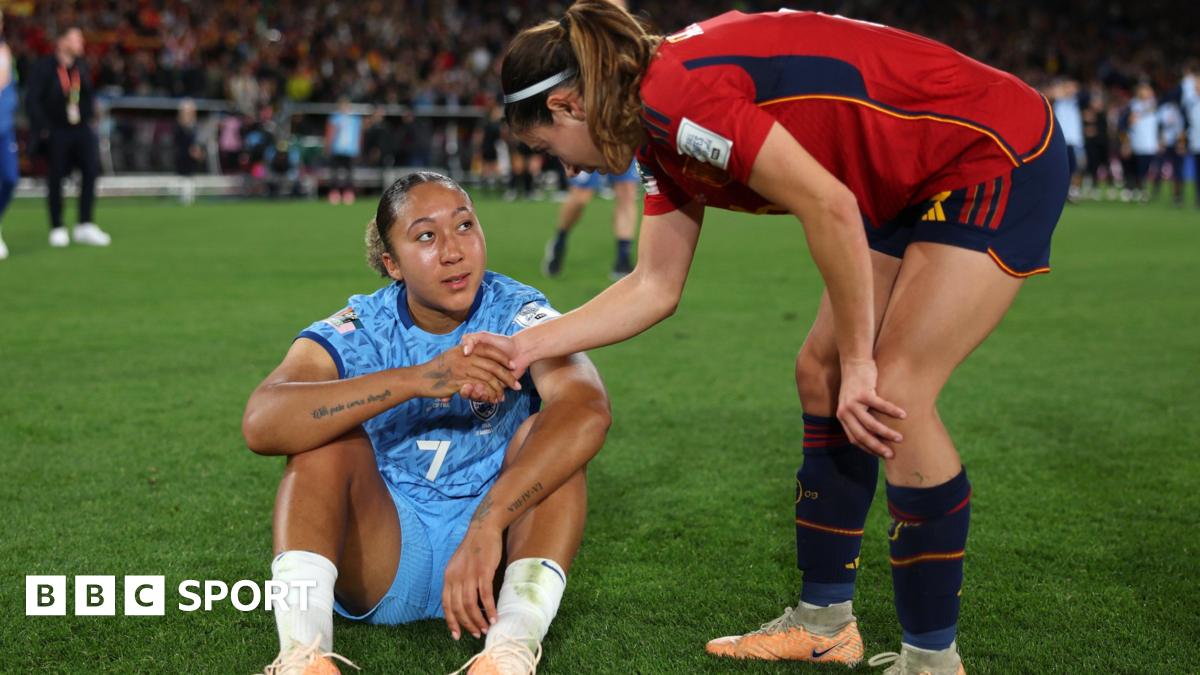Haven’t the fans of the Washington Commanders and Cleveland Guardians suffered enough?
For decades, each team had to endure the twin indignities of on-field futility and off-field scorn. Until last year, when they enjoyed a resurgence under rookie quarterback Jayden Daniels, the Washington NFL team had won exactly only one playoff game in the 21st century. Cleveland’s baseball team have been competitive this century, but they once went 41 years between playoff appearances (from 1954 to 1995) and came out on the losing end in the “whose drought will end?” World Series of 2016, in which the Chicago Cubs won the championship for the first time in 108 years at the expense of Cleveland, whose epoch without a World Series win now stands at 77 years.
Off the field, both teams faced backlash over their names. Cleveland were known as the Indians until 2022, when a name change to “Guardians” went into effect. Washington had a more disturbing name referring to Native Americans until they became the “Washington Football Team” in 2020 and landed on “Commanders” from 2022 onwards. The Commanders took another step forward in 2023, when a consortium led by Josh Harris bought the team from Dan Snyder, one of the most reviled team owners in NFL history. Coincidentally – or perhaps not given Snyder’s failings – the Commanders reached the conference championship last season for the first time since 1991.
But Donald Trump, whose quest to make the intellectual and public-service classes miserable is a cornerstone of his presidency, has decided that these two fanbases need more suffering. On Sunday he insisted on social media that the teams should reclaim the names they dropped after decades of pressure. His reasoning, as far as it could be discerned from his typically stream-of-consciousness post, was that changing the names back would be respectful to the many Native Americans who found them offensive in the first place. “Our great Indian people, in massive numbers, want this to happen. Their heritage and prestige is systematically being taken away from them,” Trump wrote.
The first thing to say is that Trump often decides to fire off a broadside at sports, when he is looking to distract from other problems, rile up his base or target groups he has contempt for. See, for example, his attacks on the US women’s national team, Black NFL players who knelt for the national anthem or transgender athletes.
The second thing to say is that Trump is unlikely to get anywhere with his demands.
The Guardians immediately squashed any notion of reverting to “Indians,” and Trump has no leverage to force them to do his bidding. The Commanders’ situation is a bit more complicated, but Trump is unlikely to prevail there, either.
Trump has implied that he will force the Commanders to revert to their old racist name if they want to be allowed to move back to the District of Columbia from their current home in suburban Maryland. The problem is that Joe Biden, in his last weeks as US president, signed a bill transferring the site in question from the federal government to the DC city government. Barring any creative legal maneuvers, the most Trump could do would be to attack the municipal government on other fronts as an indirect way of putting pressure on the Commanders.

The team’s potential new home in DC is occupied by the decaying ruins of RFK Stadium, where the Team Now Known As the Commanders played from 1961 to 1996. The Washington Nationals also played there from 2005 to 2007, when Nationals Park was completed. Other than that, the stadium was the home of Major League Soccer’s DC United and other soccer events until 2017, when DC United moved to their new home at Audi Field. Even before United moved out, the stadium was renowned for its decrepit state, though raccoons occasionally found it hospitable.
RFK Stadium, though, had many things going for it. It was named for Robert F Kennedy, a distinguished attorney general who may well have been elected president in 1968 had he not been assassinated while campaigning. The stadium had history. It was also an easy walk from a Metro station.
The Commanders’ current home, now known as Northwest Stadium, has none of those things. It is a stadium devoid of charm, notable wins by the home team, and good transportation options – even by the standards of a city with brutalist architecture, sporadically successful sports teams, and traffic obstacles. Shortly before his death, then-owner Jack Kent Cooke convinced the US Postal Service to accept that the stadium’s zip code would be known under the placename “Raljon,” a combination of his sons’ names (Ralph and John), prompting Washington Post columnist Tony Kornheiser to quip that everyone was lucky that his kids weren’t named Peter and Ennis.
At one time, the Washington NFL team had a long waitlist for season tickets. While the number of people on that waitlist at any given time is heavily disputed, it’s certainly true that the typical fan could not simply buy season tickets without spending a few years waiting for the opportunity. By the end of Snyder’s reign, even with Northwest Stadium’s capacity reduced from 91,000 to about 62,000, the waitlist no longer existed.
So a return to the old RFK site would be very attractive to the Commanders and their fans. But they have other options as well in the suburbs and exurbs, and even without presidential opposition, some local politicians have raised objections to the city’s proposed $1bn investment in a new stadium.
And that issue leads back to the federal government – which has the power to force DC to slash its budget, even if local tax revenues are sufficient to cover it – and occasionally threatens to do so.
So Trump and his allies in Congress could, in theory, cut the DC budget out of spite if the Commanders refuse to change their name. But name changes and stadium development take a long time, and the clock on Trump’s tenure in office is ticking. By any other name, Washington’s football team had been in the DC metro area for close to 80 years before Trump’s arrival, and it will be around long after he has packed up for Mar-a-Lago or another destination for good.

 2 days ago
6
2 days ago
6










 English (US)
English (US)